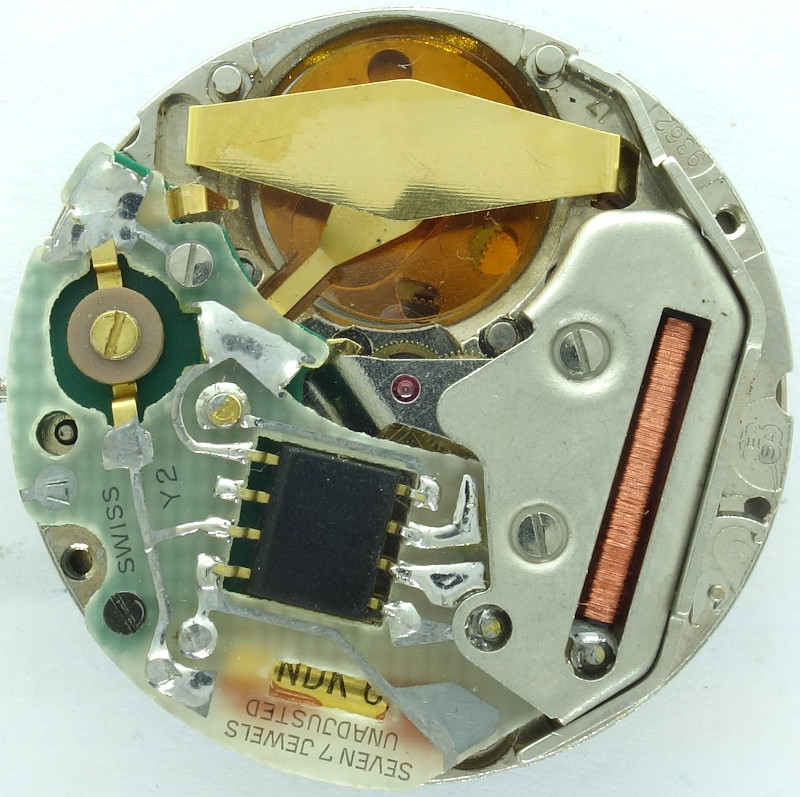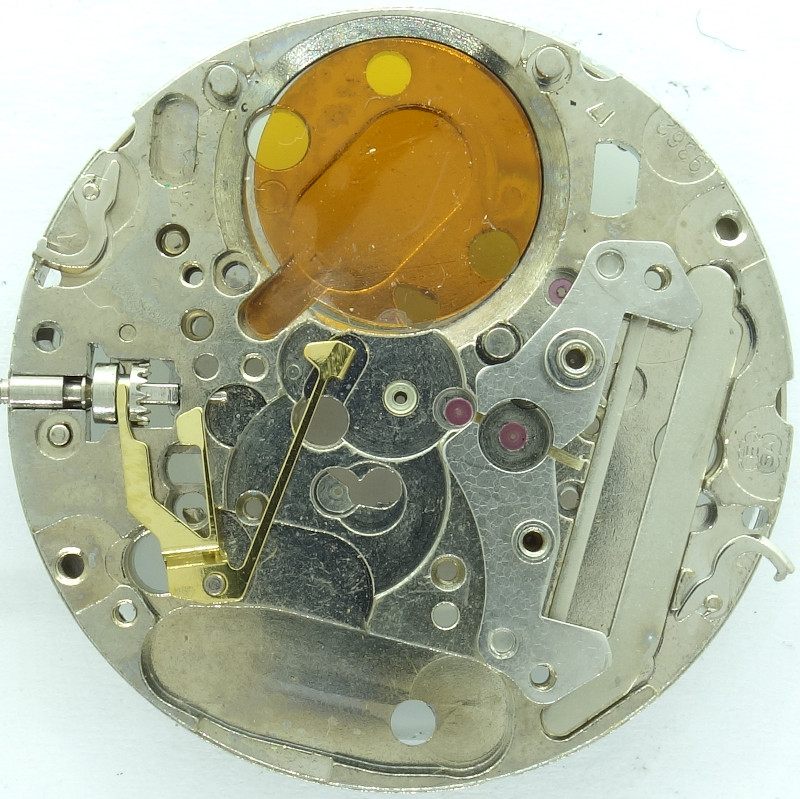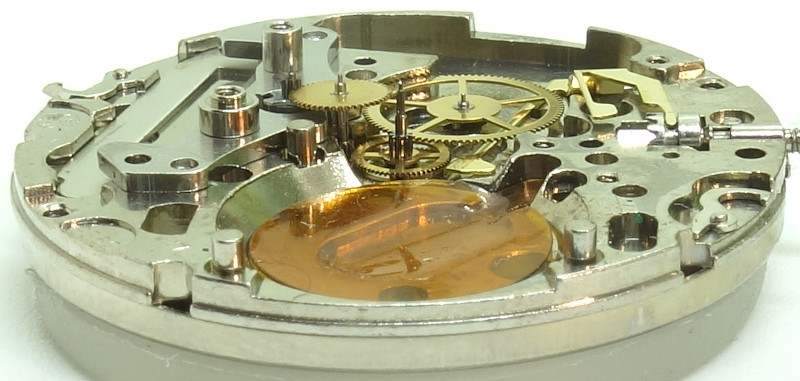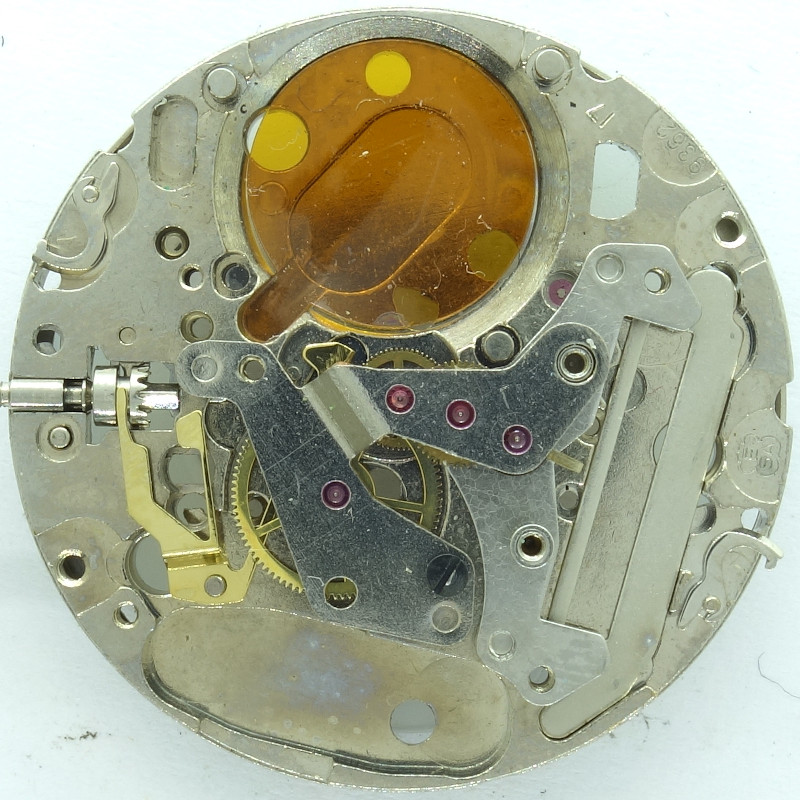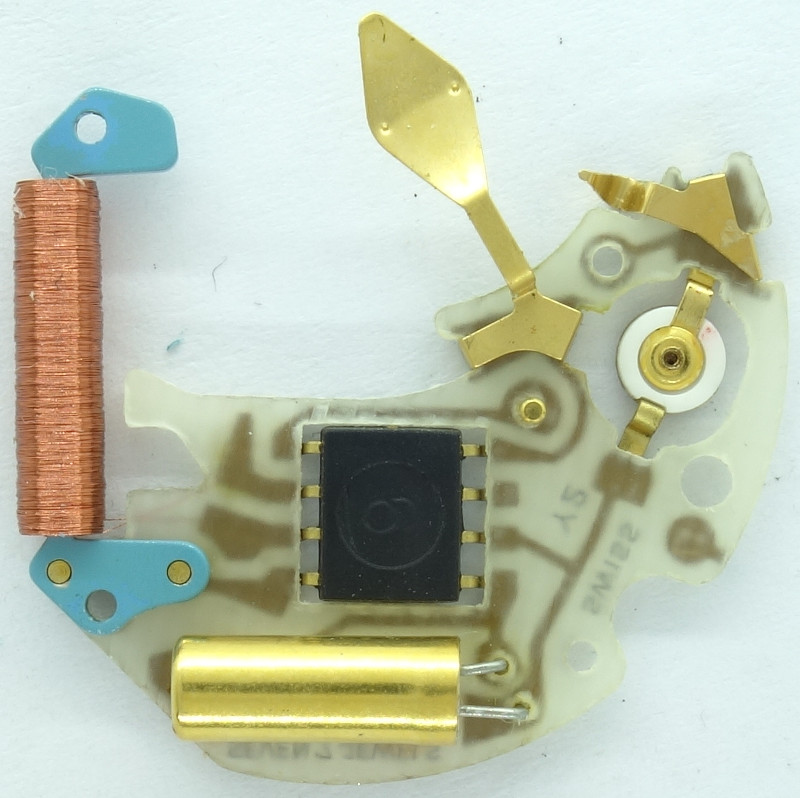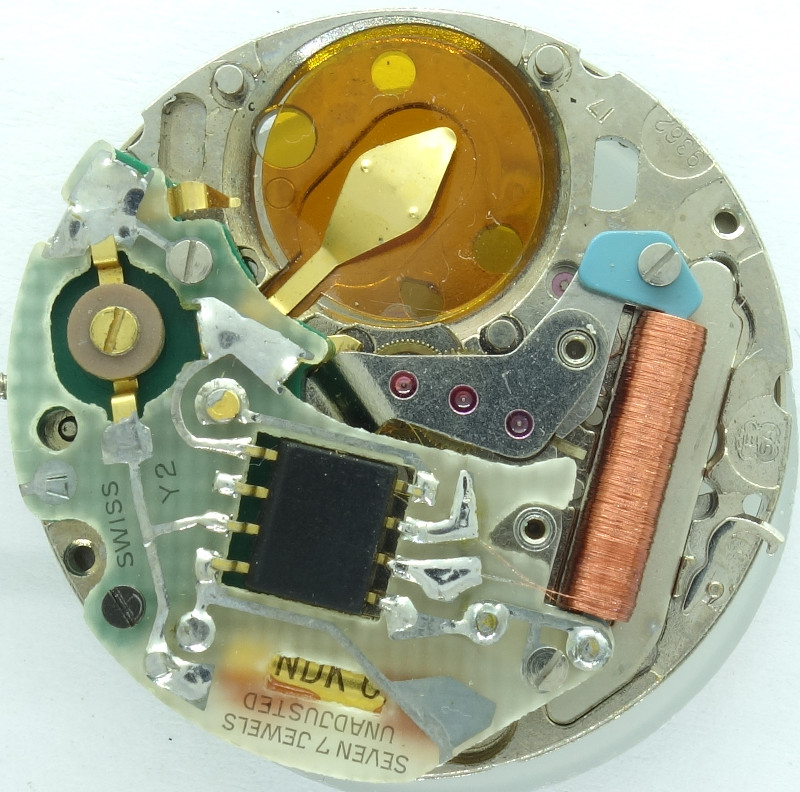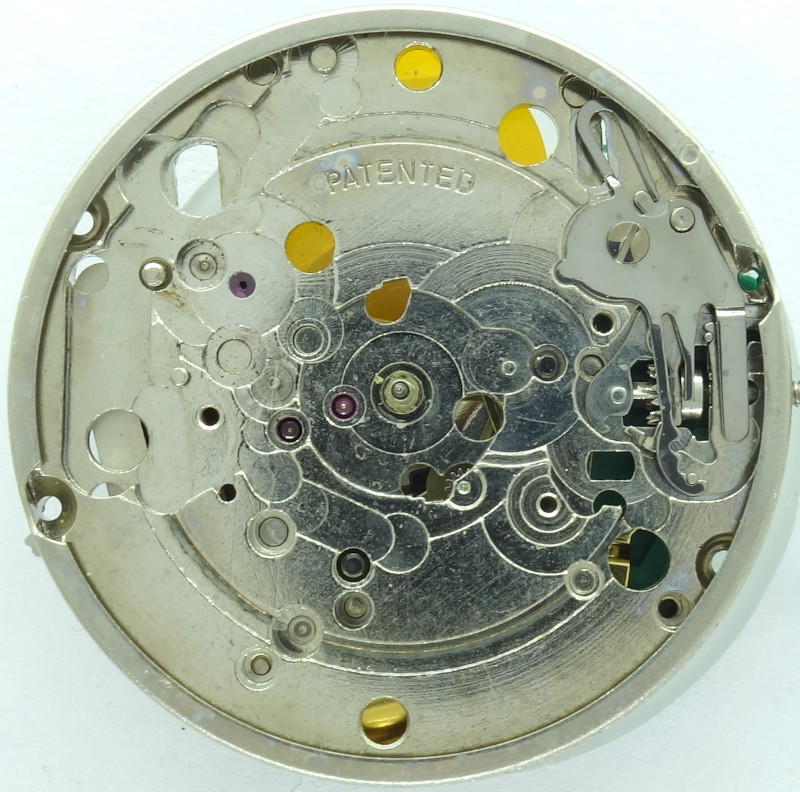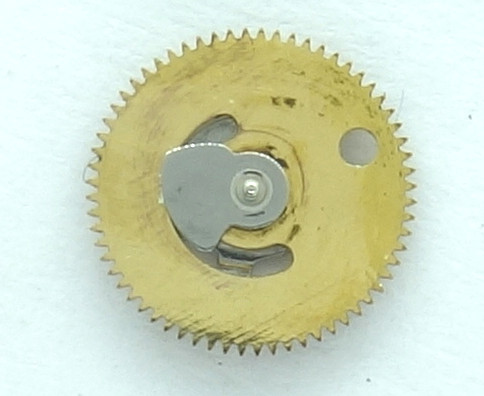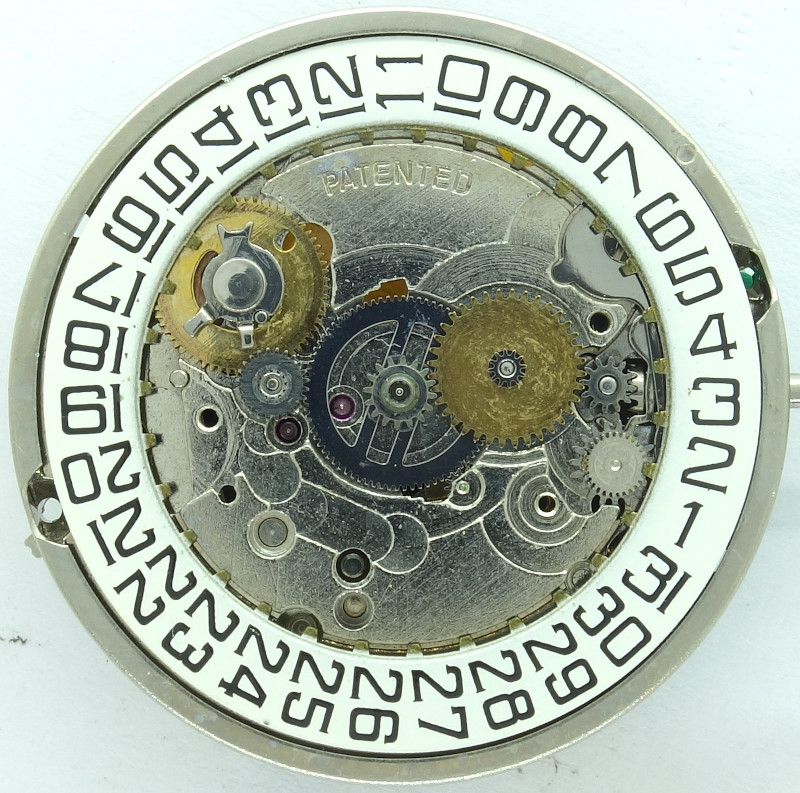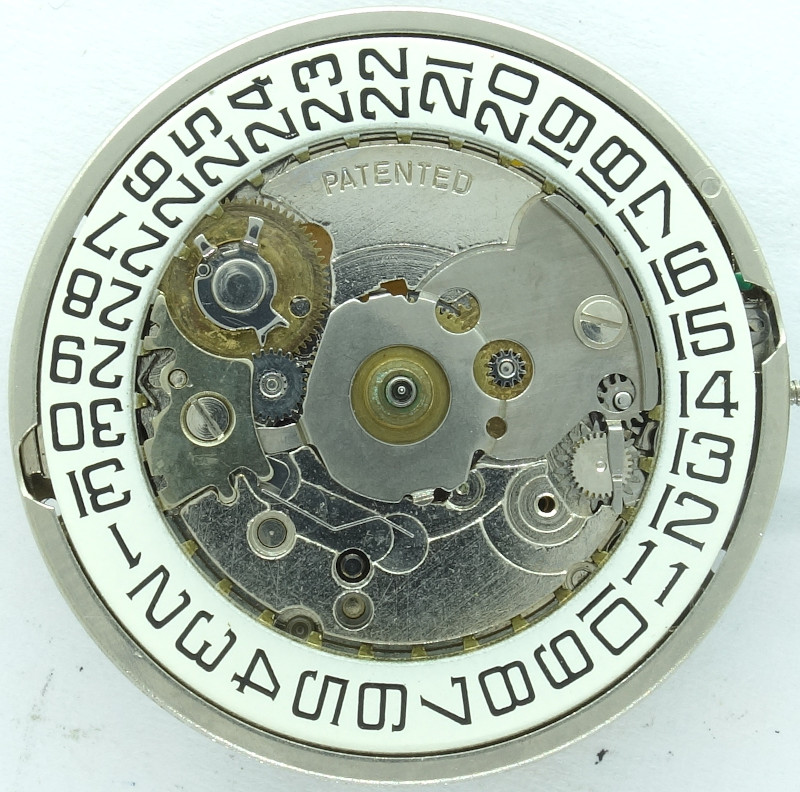Description
Already in 1976, the ESA launched the successor of the pretty complex ESA 9180, the ESA 9631, back then unter the name “Swisssonic”.
Two years later, it became part of the so-called “Gabarit” caliber family, a series of mechanical and quartz movements, which were interchangeable in size, dial mounting- and stem positions. There it was also listed as “ETA 9361”, but even in the official literature from ETA, both names, ESA 9361 and ETA 9361 were used.
The base plate of this 11 1/2 ligne movement shows, that we have the Lavet stepper motor construction, a principle which is standard until today. Hard to believe, that the introduction of this construction already in the mid 1970s successfully finished the research of the best quartz wristwatch movement implementation.
The gear train is typical for ETA and quartz movements, it starts with the rotor, followed by a reduction wheel, the center seconds wheel and the ETA-typical large third wheel, which drives the time displaying works on the dial side. Hence, there’s no center minute wheel.
With a height of only 5.5 millimeters, this movement was much flatter than its predecessor, mainly due to the much smaller electronic parts and the quartz.
The gear train is a pillar construction with a very simple stamped gear train bridge, which at least used a number of bearing rubies. Since the center seconds wheel is only ruby-beared on one side, we have seven jewels in total.
From now on, the electronics was implemented on an own circuit board, without constructive surprise. The variable capacitor, which could adjust the frequency of the quartz oscillator, was usual these days.
As you can easily see here, both ends of the coil are extremely thin and fragile and soldered to the circuit board. To protect them, a massive metal cover was used.
The empty dial side shows many similarities to the mechanical movements of that time. For example, the setting lever is identical to other ETA movements of that time, and also the hands are indirectly driven by a gear at position 4:30 near the center.
For the calendar mechanism, a two part switching wheel is used, whose lower part is set under tension by a spring, to make the date advance immideatly at midnight.
A construction, which is not much service-friendly…
The ESA 9361 has got a date quickset mechanism, realized by a gear at position 4 o’clock, which is freely beared and only used in the middle crown position.
A still pretty interesting movement, especially when you take into account, that with this movement, already in the mid 1970s, quartz movements were so advanced, that there was no need for substantial further development, and construction-wise, nothing has changed in the past fifty years.
Technical data
| Manufacturer: | ESA |
| Caliber: | 9361 |
| Caliber base: | ESA 9360 |
| Size: | 11 1/2''' (measured: 25,6mm) |
| Height: | 5,50mm |
| Frequency: | 32768 Hz |
| Number of jewels: | 7 |
| Escapement: | Quartz |
| Shock protection(s): | none |
| Moveable stud: | no |
| Adjust mechanism: | Variable capacitor |
| Construction: |
|
| Construction type: | pillar construction |
| Winding mechanism: | yoke winding system |
| Setting lever spring: | 2 hole(s) |
| Attachment of setting lever: | plugged |
| Features: |
|
| Documentation (years): | 1979 |
| Inventory number: | 23021 |
